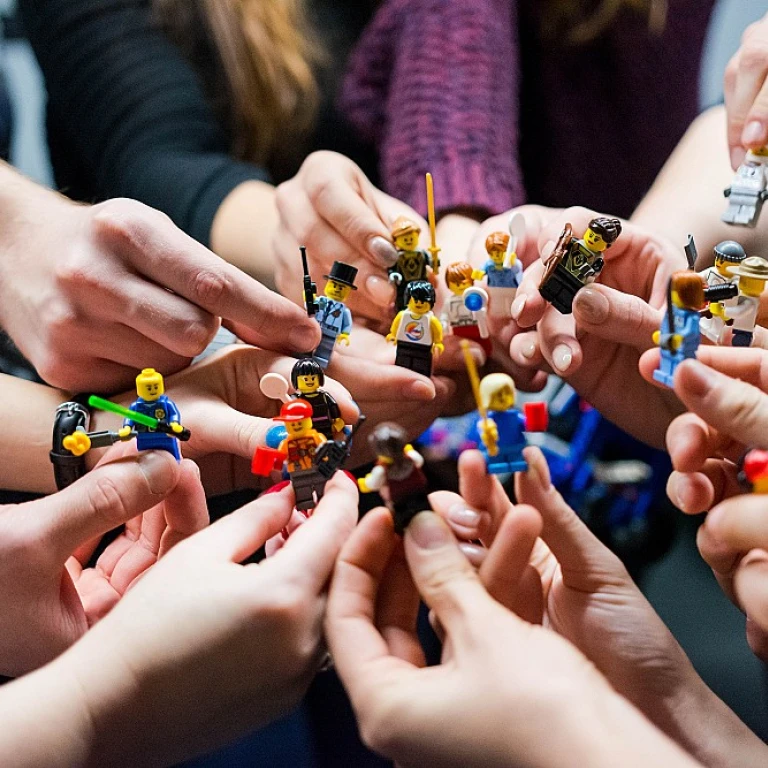
Understanding Rational Thinking
Grasping the Essence of Rational Thinking
Rational thinking, at its core, embodies the art of reaching conclusions based on logical reasoning. It's an indispensable skill that empowers students to make informed decisions across their academic and personal lives. From drawing upon principles steeped in philosophy and science to applying the tenets of mathematics and computer science, understanding how rational thinking functions is crucial in our modern world.
In essence, rational thinking equips individuals with the ability to engage in deductive reasoning, analyze information critically, and apply structured reasoning to real-world problems. This form of human reasoning is what distinguishes us and serves as a fundamental tool for continuous learning.
- Reasoning: This is where rational reasoning plays a vital role in harnessing the power of thought to understand and interpret various subjects.
- Logical Reasoning: A function that aligns closely with the principles of mathematics and helps to deduce consistent outcomes.
- Understanding Human Decision-Making: By analyzing citation and inference, individuals enhance their capacity for rational decision-making.
Whether you're a university student or a lifelong learner, the ability to think rationally directly impacts problem-solving prowess and helps in effective educating practices. The skills derived from an understanding of rational thinking are not just pivotal within the realm of academia but translate well into every facet of life.
To better explore the critical skills tied to rational thinking and how they contribute to diversity and inclusion in continuous learning, visit our blog on embracing diversity, equity, and inclusion.
The Role of Rational Thinking in Learning
Rational Thinking as a Stepping Stone in Education
Rational thinking represents a critical component in the realm of learning, enabling individuals to process information efficiently. It functions as a bridge that connects the dots of understanding, allowing both students and educators to approach knowledge with a logical perspective. Human reasoning stands as the foundation of all educational pursuits, especially in disciplines such as mathematics and science. In university settings, the role of rational thinking becomes particularly prominent. Students are encouraged to engage in deductive reasoning to develop a stronger comprehension of the subjects they study. This logical reasoning is crucial when faced with complex topics where human reasoning and analytical skills prove essential for making informed conclusions. Educating students in the principles of rational thinking involves more than just imparting knowledge. It requires nurturing an environment where critical thinking is prioritized. Teachers have the responsibility of helping students differentiate between mere information and reasoned insight. This is achieved through methods such as teacher notes that break down concepts into more manageable parts and tutoring contact for personalized assistance. The emphasis on rational thinking is also prevalent in the modern fields of artificial intelligence and computer science. These disciplines are rooted in logical frameworks and require a keen application of rational principles to solve intricate problems. Understanding how rationality applies in both theoretical and practical contexts helps students navigate these fields more effectively. Ultimately, the integration of rational thinking in learning enriches the intellectual landscape of learners. Whether through structured lesson plans or free public resources, it equips individuals with the tools needed for problem-solving and advanced reasoning. For an exploration of how educational institutions foster rational thinking and continuous learning, consider diving into the journey of Trek University.Common Barriers to Rational Thinking
Obstacles to Clear Thinking
Rational thinking is a cornerstone of effective learning, yet several barriers can hinder its development. Understanding these obstacles is crucial for anyone aiming to enhance their reasoning skills. In the context of continuous learning, recognizing and overcoming these barriers can significantly improve the quality of education and personal growth.
One of the main barriers to rational thinking is the prevalence of cognitive biases. These are systematic patterns of deviation from norm or rationality in judgment, which often lead to illogical conclusions. For instance, confirmation bias causes individuals to favor information that confirms their pre-existing beliefs, ignoring evidence to the contrary. This not only impairs logical reasoning but also stifles the critical thinking necessary for effective learning.
Another significant barrier is the lack of foundational understanding in subjects like mathematics and science. These disciplines are essential for developing logical reasoning and problem-solving skills. Without a solid grasp of these subjects, students may struggle to engage in deductive reasoning and other forms of rational reasoning. Educators play a vital role in helping students overcome this barrier by providing clear explanations and fostering an environment conducive to learning.
In the digital age, information overload can also impede rational thinking. The sheer volume of data available can overwhelm individuals, making it challenging to discern credible sources from unreliable ones. This is where critical thinking and the ability to evaluate information based on evidence and logic become indispensable.
Moreover, emotional influences can significantly affect human reasoning. Emotions can cloud judgment and lead to decisions that are not based on rationality. It's essential for students and educators to recognize the impact of emotions on decision-making processes and strive to maintain a balance between emotional and logical reasoning.
Lastly, the modern education system sometimes prioritizes rote learning over understanding, which can undermine the development of rational thinking. Encouraging students to question, analyze, and synthesize information rather than memorize facts can help in nurturing a more rational approach to learning.
For those involved in managing educational projects, understanding these barriers is crucial. By addressing them, educators and project managers can create more effective learning environments that foster rational thinking. For more insights on managing educational projects, you might find this resource helpful.
Strategies to Enhance Rational Thinking
Enhancing Rational Thought for Continuous Learning Gains
In the pursuit of mastering rational thinking, especially as a means to bolster continuous learning, strategic enhancements are indispensable. With rational reasoning serving as the main foundation of logical thinking and problem-solving, an understanding of various methods to cultivate it can serve as a powerful tool for students and lifelong learners.
- Cultivating Critical Thinking Skills: Engaging with philosophy and mathematics can sharpen deductive reasoning abilities. This approach aims to help students and educators alike in fostering a deep understanding of rational reasoning, essential for university courses and beyond.
- Incorporating Logical Exercises: Regularly practicing logical reasoning and deductive exercises, such as reasoning imathas puzzles, can reinforce the functions of human reasoning and support modern learning paradigms.
- Interactive Learning Environments: Leveraging computer science-based tools and products tutoring, such as artificial intelligence-driven programs, ensures personalized learning experiences that cater to individual learning paces and styles.
- Formulating Reasoned Conclusions: When engaging in free public forums or classroom discussions, aim to base conclusions on reliable data and rational analysis. This encourages students to embrace a science-backed viewpoint when discussing complex topics.
- Utilizing Teacher Notes and Tutoring Contact: Teachers educating students should prioritize providing thorough teacher notes and being available for tutoring contact, enabling a supportive environment for enhancing rational thought processes.
- Balancing Humanities with Sciences: Embracing both humanities, such as philosophy, and sciences, like computer science, allows a holistic development of rational thinking skills essential for solving diverse problems.
The integration of these strategies will likely serve not just students but anyone keen on rational reasoning and critical thinking, forming a robust foundation for continued education and personal development.
Applying Rational Thinking to Problem-Solving
Rational Thought Processes for Solving Complex Challenges
Rational thinking is pivotal when tackling the multifaceted realm of problem-solving. As the world becomes increasingly interwoven with complex challenges, individuals equipped with rational reasoning can navigate these problems more effectively. Here's how rational thinking aids in problem-solving:- Logical Reasoning: Employing logical reasoning, often derived from educational disciplines such as mathematics and philosophy, allows individuals to break down problems into manageable components. This structured approach is fundamental for deciphering intricate issues encountered in fields like computer science or any modern-based challenges.
- Deductive Reasoning: By utilizing deductive reasoning, learners can draw evidence-based conclusions. Understanding the functions of reasoning helps students and educators to develop a framework through which solutions are not only plausible but also backed by rationality. Rational reasoning ensures that conclusions are sound and reliable.
- Critical Thinking: Often introduced as part of university curriculums, critical thinking goes hand in hand with rationality. It equips students with the ability to evaluate and prioritize information, ensuring that the methods chosen for problem-solving are effective and reasoned. Educators and teachers play a crucial role by embedding these critical thinking skills in students, fostering better human reasoning capabilities.
- The Philosophy and Science Intersection: Enlightening students on the philosophical underpinnings of rationality can empower them with a more profound understanding of human reasoning. This philosophical context intertwined with science encourages a holistic approach in solving problems, enhancing the overall reasoning human experience.













